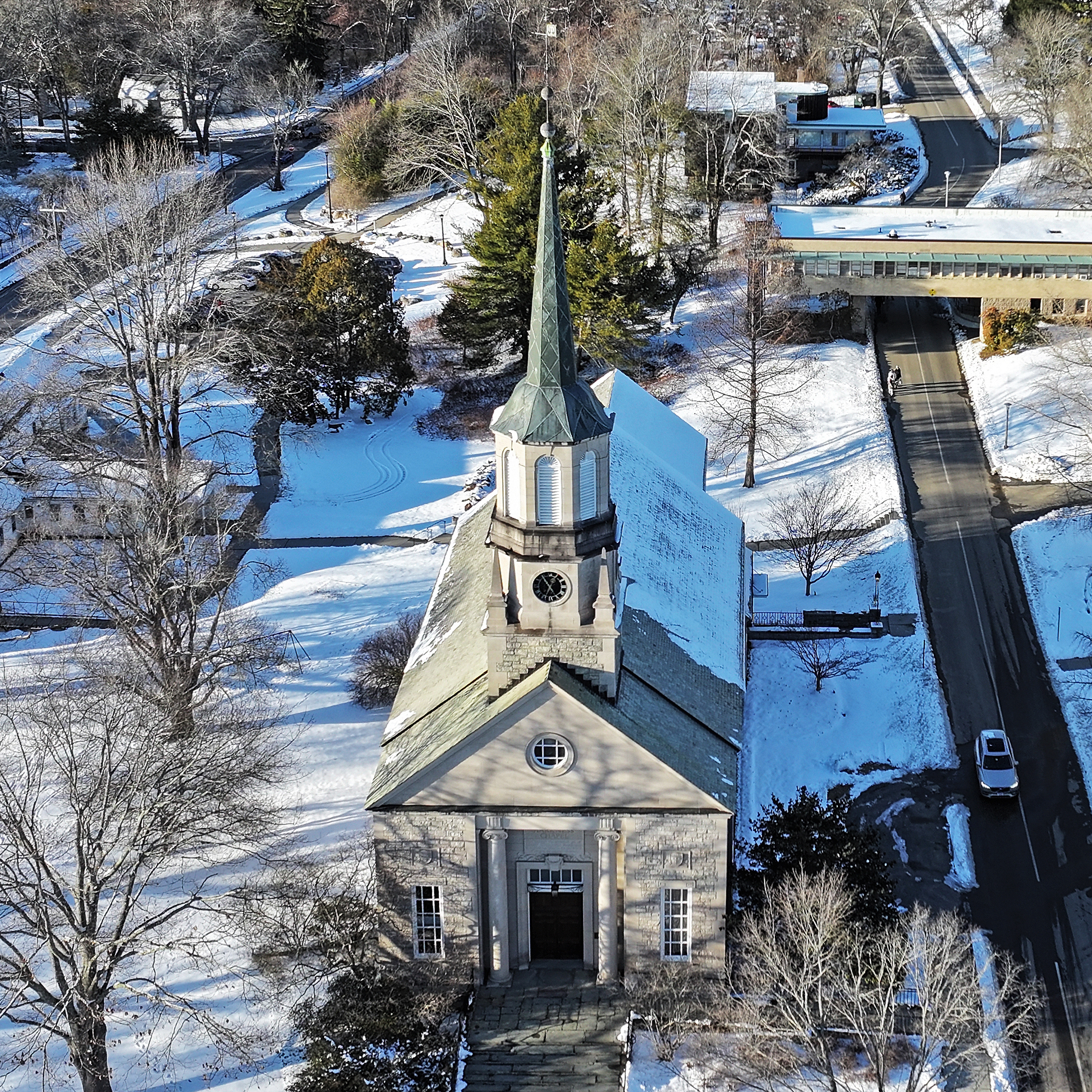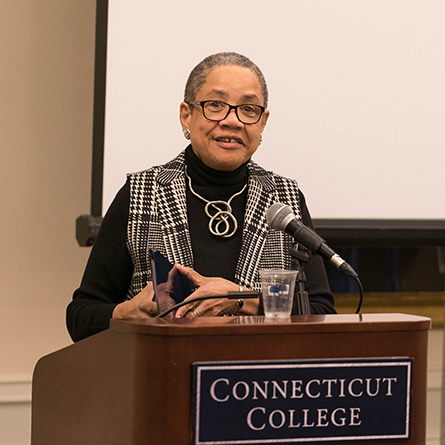
Connecticut College hosts 1619 Project commemoration
Connecticut College on Thursday hosted a reception commemorating the 1619 Project, a New York Times initiative observing the 400th anniversary of the beginning of American slavery.
According to the Times, the 1619 Project “aims to reframe the country’s history, understanding 1619 as our true founding, and placing the consequences of slavery and the contributions of black Americans at the very center of the story we tell ourselves about who we are.”
Cherise Harris, chair of the sociology department and associate director of Conn’s Center for the Critical Study of Race and Ethnicity (CCSRE), told The Day newspaper that the aim of the event was to not let the moment go by unrecognized, and to honor the 1619 Project's effort to bring 1619 to the present.
“This is not just black history; this is American history,” she said.
The event, co-hosted by CCSRE and the Office of the Dean of Institutional Equity and Inclusion (DIEI), featured poetry readings and a reading of a narrative of an enslaved woman. It was the first in a series of events at the College that will continue throughout the spring semester.
The College will welcome Khalil Gibran Muhammad, professor of history, race and public policy at Harvard Kennedy School and the Suzanne Young Murray Professor at the Radcliffe Institute for Advanced Studies, at 4:15 p.m. on Feb. 24 in the Charles Chu Asian Art Reading Room in Shain Library. Muhammad, who wrote an essay for The 1619 Project on the history and legacy of sugar plantations, will give a talk about looking back at 1619, and thinking about the present and future of criminal justice reform in America. In partnership with the United States Coast Guard Academy, CCSRE and DIEI will also host bestselling author and director of the Antiracist Research & Policy Center at American University Ibram X. Kendi in February. Details on that event are forthcoming.
Additionally, during the month of February, CCSRE will host a four-part film series exploring black revolutionary thought by following individual black thinkers, activists and organizations to illuminate a part of black history and activism that is often hidden away by mainstream media. Screenings will take place at 6 p.m. every Friday in the College Center at Crozier-Williams.

